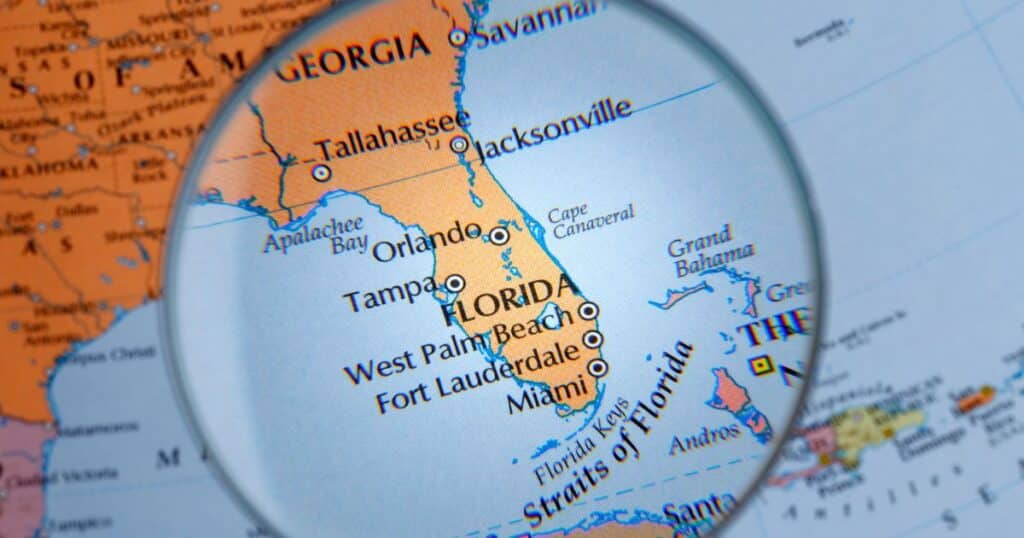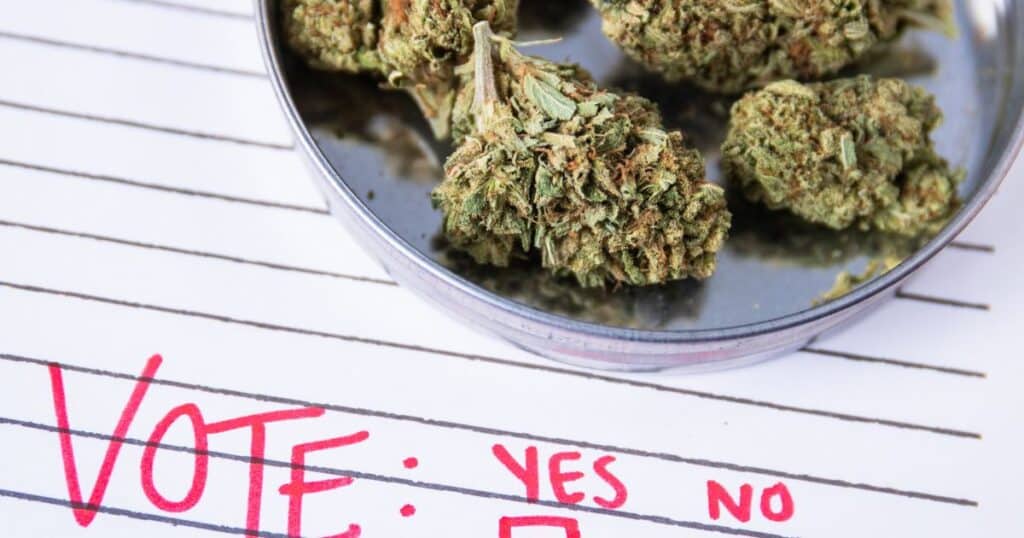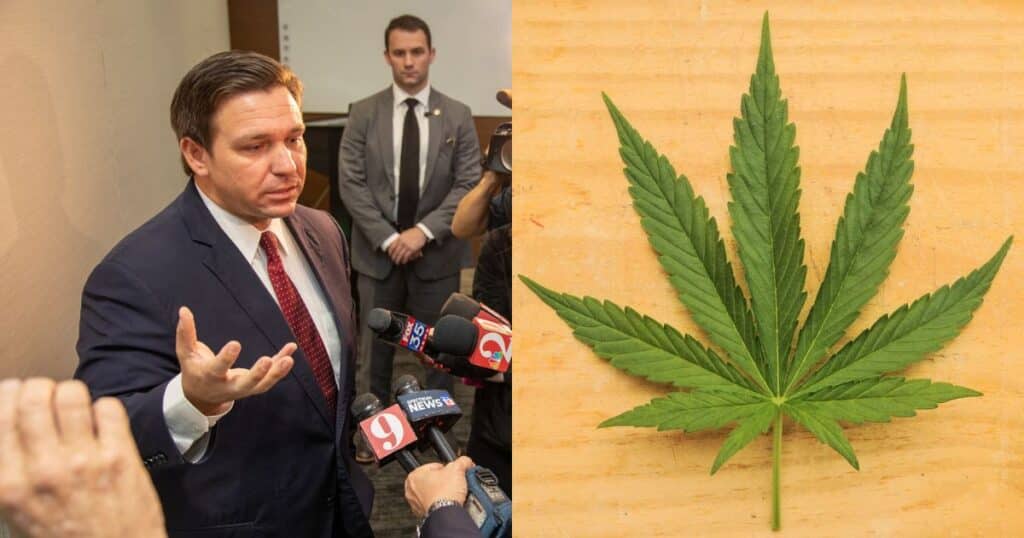Florida- In the continuously evolving landscape of cannabis and hemp regulation, Florida Governor Ron DeSantis has emerged as a central figure. Recent developments suggest that DeSantis is planning to veto a bill that would severely restrict consumable hemp-derived cannabinoid products such as delta-8 THC. This strategic move appears to be part of a larger plan to leverage the hemp industry against a marijuana legalization initiative set for the state’s November ballot.

Governor DeSantis has made his stance against marijuana legalization clear, arguing that Florida should not extend its cannabis policies beyond the existing medical marijuana program. However, his reported plan to veto Senate Bill 1698 according to insiders who talked to CBS, which aims to limit the sale of hemp products containing delta-8, delta-9, and delta-10 THC, introduces an intriguing twist in his political strategy.
According to sources close to the governor, DeSantis hopes that by vetoing this bill, he can gain the support of the hemp industry. The expectation is that the industry, eager to maintain its booming market, will help finance a campaign to oppose the marijuana legalization measure. This strategy highlights a complex dynamic where DeSantis appears to be fostering a divide-and-conquer approach, pitting the cannabis and hemp industries against each other.
Senate Bill 1698
Senate Bill 1698, if signed into law, would impose strict regulations on hemp products, including those containing various forms of THC. Key provisions of the bill include:
- Defining “total delta-9-tetrahydrocannabinol concentration.”
- Setting conditions for the manufacture, delivery, and sale of hemp extract.
- Prohibiting businesses from possessing hemp extract products attractive to children.
- Restricting the Department of Agriculture and Consumer Services from allowing certain hemp extract products until they comply with state law.
These measures aim to curb the sale of high-potency THC products, which critics argue pose public health risks due to insufficient regulation and testing.
Political Support and Opposition
Politicians across the aisle have weighed in on the debate. Republican Party of Florida chair Evan Power, a leading advocate for the hemp industry, expressed hope that DeSantis would veto the bill. Power stated via CBS, “I’ve had conversations with staff on the bill, and he is moving toward a decision. We hope he doesn’t sign it.”
On the other hand, Florida Democratic Party chair Nikki Fried, who supported hemp expansion during her tenure as state Agriculture Commissioner, emphasized the non-partisan nature of cannabis access.
Fried remarked, “Hemp products provide relief to millions of Floridians—including veterans, seniors, and patients with chronic pain. Any attempts at regulation should protect consumers, while considering the impact on accessibility for patients and the ability of small businesses to compete.”
DeSantis’s position on cannabis regulation is not without contradictions. While he cites concerns over high-potency THC products as a reason to oppose marijuana legalization, his willingness to allow an unregulated hemp market to thrive seems at odds with these concerns. Critics argue that this inconsistency suggests a political maneuver rather than a public health-driven decision.
An unnamed source familiar with the governor’s thinking said via CBS, “It doesn’t make sense, unless what you are really looking for is money from the hemp industry.” This sentiment reflects the skepticism surrounding the governor’s true motivations and raises questions about the ethical implications of his strategy.
Implications for Florida Hemp and Marijuana Industries
DeSantis potential veto of SB 1698 could have significant implications for both the hemp and cannabis industries in Florida. For the hemp industry, a veto would preserve the current market dynamics, allowing the continued sale of popular THC-infused products like delta-8 gummies. This would sustain the economic momentum the industry has built, estimated at $10 billion in sales in 2022.
For the marijuana industry, however, the veto represents a strategic setback. By keeping the hemp industry’s economic interests intact, DeSantis might successfully recruit their financial support to counter the marijuana legalization initiative. This aligns with his broader goal of maintaining Florida’s status quo on cannabis regulation.

As the November ballot approaches, the tension between the hemp and marijuana industries in Florida continues to mount. DeSantis’s reported veto of SB 1698 could tip the scales, creating an alliance between the hemp industry and anti-marijuana legalization forces.
However, the future remains uncertain. Lawmakers, industry stakeholders, and advocates on both sides of the debate are preparing for what promises to be a contentious battle. The outcome will not only shape Florida’s regulatory environment but could also set a precedent for other states grappling with similar issues.

















